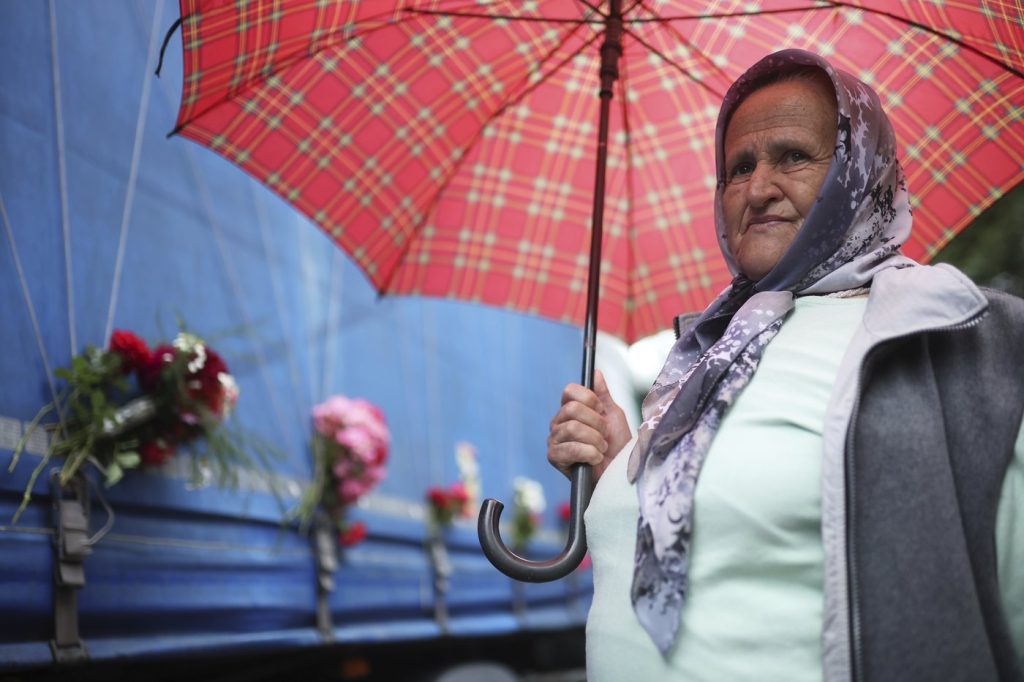On a rainy Wednesday morning in Visoko, Bosnia-Herzegovina, a blue truck adorned with flowers set off carrying coffins containing the remains of seven newly identified victims from the tragic 1995 massacre in Srebrenica. This somber event marked the final journey of these individuals, coinciding with the 30th anniversary of Europe’s only recognized post-World War II genocide.
As the truck departed in a convoy toward Sarajevo, many residents of Visoko gathered to pay their respects. The convoy would halt in the capital before continuing to Srebrenica, where the victims will be laid to rest. In July 1995, during the Bosnian War, more than 8,000 Bosniak Muslim men and boys were brutally murdered by Bosnian Serb forces after they seized control of Srebrenica, a small town in eastern Bosnia. The bodies of the victims were initially disposed of in mass graves, and in an attempt to obliterate evidence of their heinous crimes, they were subsequently reburied multiple times.
The seven recently identified victims were discovered in various locations over the years, emphasizing the ongoing efforts to uncover the past and honor those who suffered. In 2022, the U.N. General Assembly adopted a resolution commemorating the Srebrenica genocide on July 11. Secretary-General Antonio Guterres, reflecting on the events, stated that the United Nations and the global community failed the people of Srebrenica. He asserted that this failure was not merely an "accident of history," but rather a result of "policies, propaganda, and international indifference."
The Bosnian conflict erupted in 1992 when Bosnia's Serb population rebelled against the country's independence from the former Yugoslavia, aiming to establish their own state and eventually unite with Serbia. This brutal war resulted in over 100,000 deaths and displaced millions before a peace agreement brokered by the United States was achieved in 1995. Presently, Bosnia remains divided along ethnic lines, with both Bosnia’s Serbs and neighboring Serbia continuing to deny the classification of the Srebrenica massacre as genocide, despite judgements from two U.N. courts confirming this classification. Numerous Bosnian Serb political and military figures have faced convictions and sentences for genocide.
Every July 11, newly identified victims of the Srebrenica massacre are honored with reburials at a vast and expanding memorial cemetery located near Srebrenica. Thousands are expected to gather at the Potocari memorial complex to mark this significant anniversary, paying tribute to the lives lost and the enduring impact of this tragic chapter in history.











